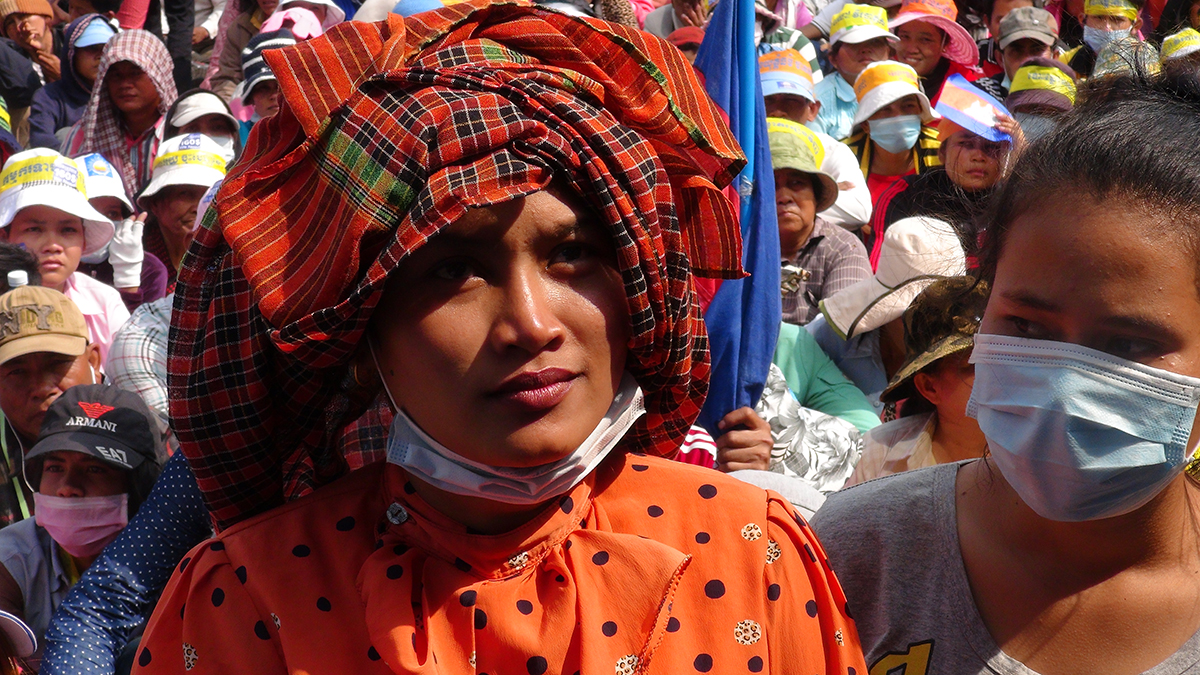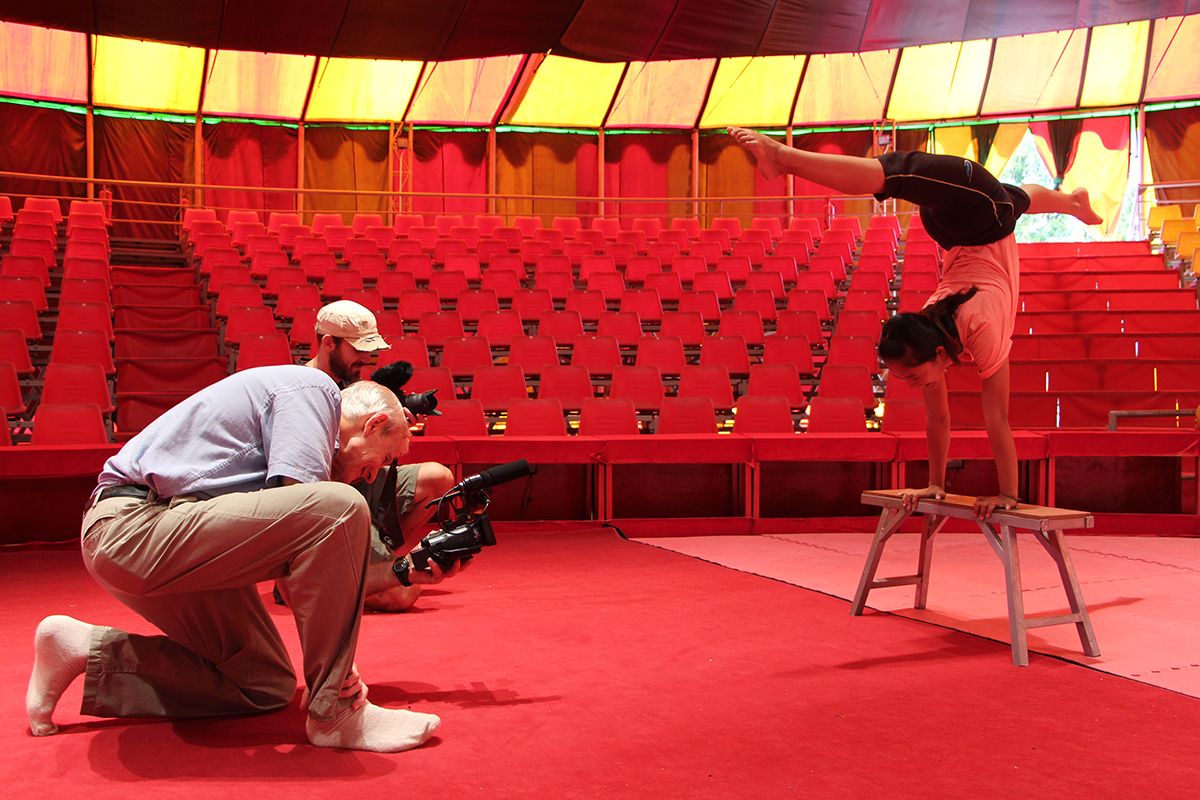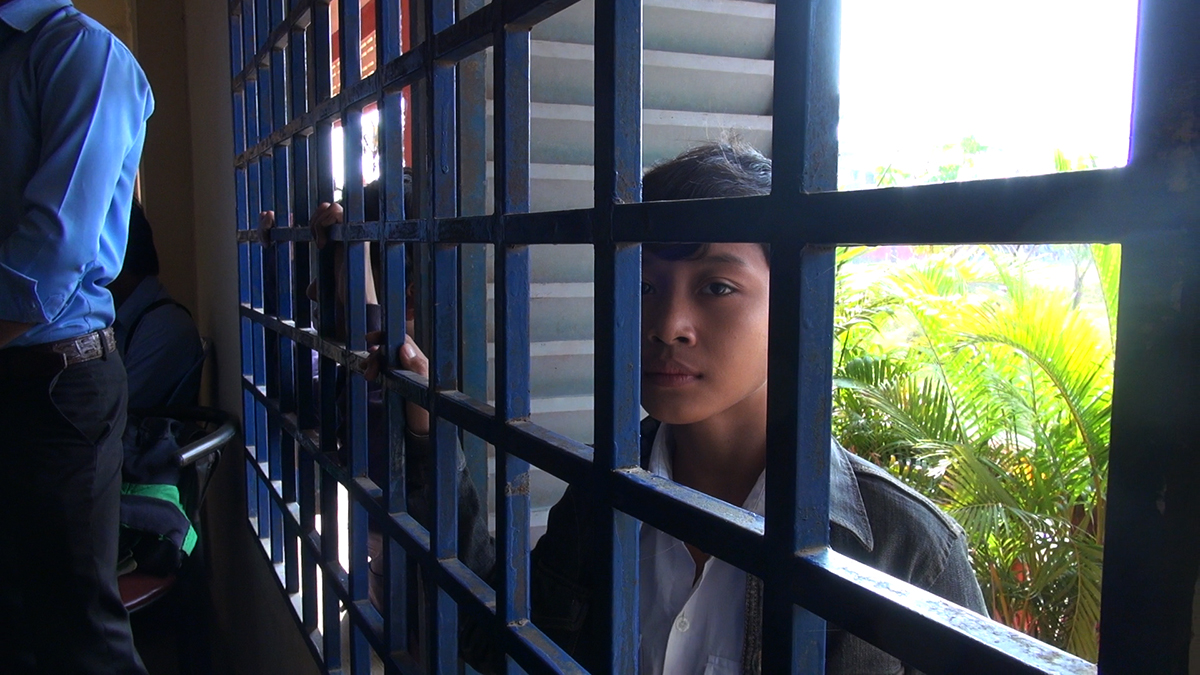'Angkor Awakens' explores Cambodia's hope, traumatic past
By Daniel Aloi

Robert H. Lieberman set out to paint a portrait of modern-day Cambodia with his new documentary, “Angkor Awakens.” As a people, Cambodians are struggling to understand their past under a violent regime and its legacy of social unrest, while its growing young population is hopeful for the future.
“There’s a tension under the surface in Cambodia. People are smiling, but it often takes very little to lead to a violent event,” said Lieberman, a senior lecturer in physics since 1980.
Before the film’s release in the United States and Europe, Cornell Cinema hosts a preview screening Oct. 3 at 7 p.m. in Willard Straight Theatre. Advance tickets are available from Cornell Cinema.
Lieberman filmed “Angkor Awakens” over four years, spending up to six weeks at a time in Cambodia.
“I went everywhere in the country – north to south, east to west,” he said. “Parts of this film are violent and bloody. I was filming on the street one day when the Cambodian riot police and Prime Minister Hun Sen’s private guards started to attack the crowd, first with batons, and later shooting began.”
The 90-minute film is culled from 200 hours of footage and more than 150 interviews, and uses shadow puppets to depict some of the country’s history, from ancient times to today.
“We start with the ancient empire in Angkor, then the largest city in the world,” Lieberman said. “We go through the French declaring the country a protectorate, and the Vietnam War, and into the future. We try to show where the country is headed.”
Throughout the film, Cambodians young and old reflect on their society emerging from its horrific past – notably under the Khmer Rouge, the ruling party from 1975 to 1979, known as the “killing fields” era.
“It’s been 36 years since the fall of Cambodia,” Lieberman said. “The older generation suffer from baksbat, what we would call PTSD – it means ‘broken courage.’ Many of them haven’t told their children what they went through, and we’re exploring that in this film.”

The Khmer Rouge era under Pol Pot was marked by the genocide of up to 3 million Cambodians (more than a quarter of the population), resulting from enforcement of social engineering policies. Lieberman, a child of the Holocaust, explores parallels between the two genocides in this film.
“The film is also a psychological analysis of the people. How did this horrendous thing happen?” he said. “It was a really weird genocide, an autogenocide. They wanted to go back to year zero and get rid of all the intelligentsia – doctors, lawyers, engineers, artists. Medicine, currency and private property were eliminated. ‘This was the cultural revolution on steroids,’ someone says in the film.”
The film includes interviews with professor of government Andrew Mertha and other faculty; Hun Sen, who was put into power by Vietnam following its war with Cambodia; and exiled opposition leader Sam Rainsy. Journalists, historians and U.S. State Department officials also lent historical perspective on events including the secret U.S. bombing of Cambodia; and the son of a former prime minister says he is convinced the CIA had a hand in the Khmer Rouge coming to power.
A usually reluctant subject, Hun Sen agreed to an interview, threw out his prepared answers and had a free-ranging conversation with Lieberman at a New York City hotel.
“We were at it for two solid hours,” Lieberman said. “Usually, with celebrities and politicians, they have one foot out the door the whole time. Not this guy.” The footage from the rare interview, he said, is “a valuable document.”
He also interviewed John Gunther Dean, 90, the last American ambassador to Cambodia before Khmer rule. Lieberman discovered that they attended the same school and both of their families had fled Germany and settled among other Jewish refugees in Kew Gardens, Queens. Lieberman explored the neighborhood’s story in his 2007 film “Last Stop Kew Gardens.”

The new film follows the international success of Lieberman’s documentary, “They Call It Myanmar,” a 2012 New York Times Critics’ Pick. His current project is an animated feature adapting his 2015 novel “The Nazis, My Father and Me,” being made in Paris with “The Triplets of Belleville” producer Didier Brunner.
With support from the Cornell Council for the Arts, “Angkor Awakens” was produced by Ithaca-based Photosynthesis Productions, headed by Deborah Hoard, MPS ’78, one of 15 Cornellians involved in the film; others were interviewed or did historical research, music and post-production work. Lieberman, Hoard and editor David Kossack will be present at the Cornell screening.
Media Contact
Get Cornell news delivered right to your inbox.
Subscribe